Life
-
 Brain
BrainEvening screen time can sabotage sleep
Blue light from electronic devices can impair the body’s ability to sleep, making it hard to focus in the morning.
-
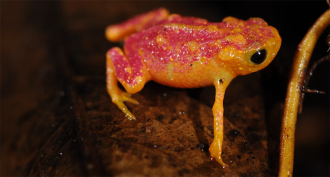 Animals
AnimalsPumpkin toadlets can’t hear themselves talk
Tiny orange frogs make soft chirping sounds in the forests of Brazil. Their ears, however, cannot hear them, a new study finds.
-
 Animals
AnimalsScientists Say: Vampire
Human vampires are found only in fiction. But vampire bats and moths are the real thing. These animals love the taste of blood, and some can’t live without it.
-
 Chemistry
ChemistryWhen bitter + bitter = sweet
Two artificial sweeteners lose their bitter aftertastes when combined together. Scientists have just figured out why.
-
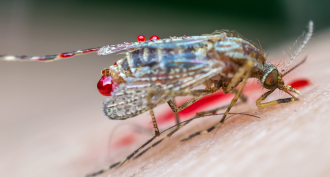 Animals
AnimalsSucking blood isn’t an easy life, even for vampires
Real vampires include bats, insects and even birds. And they’ve had to develop novel ways of dealing with a diet of blood.
By Susan Milius -
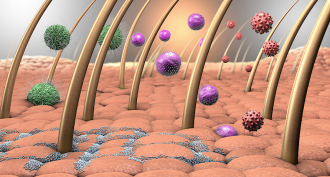 Microbes
MicrobesSweat-slurping ‘aliens’ live on your skin
Archaea are famous for living in extreme environments. Now scientists find they also inhabit skin, where they seem to enjoy sweat.
-
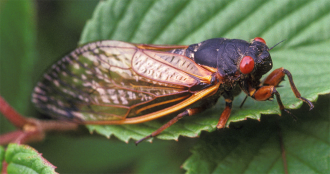 Chemistry
ChemistryWhy are cicadas such clumsy fliers?
Chemical clues in the cicada’s wing may help explain why the bulky insect is a lousy flier.
-
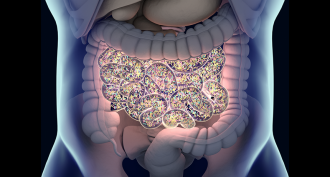 Health & Medicine
Health & MedicineHow bugs in your gut might hijack your emotions
Tiny molecules in the brain may help bugs in the gut hijack people’s emotions. That’s the conclusion of some new research.
-
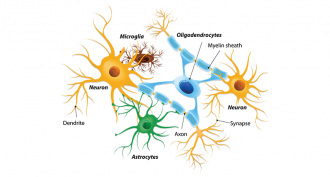 Brain
BrainScientists Say: Glia
Scientists used to think glial cells did nothing more than glue the brain together. Now we know they do much, much more.
-
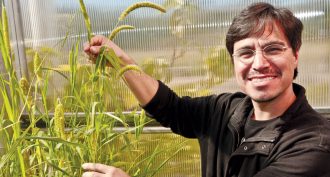 Plants
PlantsCool Job: Rethinking how plants hunt for water
Studies probing the very beginnings of root development may have important implications for growing food in a world where the climate is changing.
By Susan Milius -
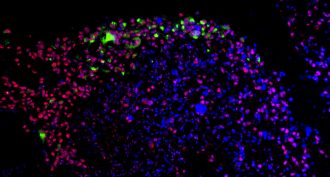 Brain
BrainCould Zika become a cancer treatment?
The same virus that provoked fear over causing birth defects, last year, may have a beneficial alter ego. Scientists find it may kill cells destined to form deadly brain tumors.
-
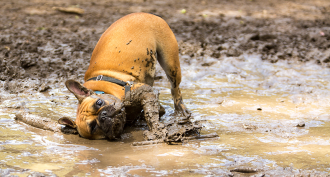 Health & Medicine
Health & MedicineGood germs lurk in gross places
What do poop, dog drool and snot have in common? Though disgusting, they all carry microbes that can help keep people healthy.